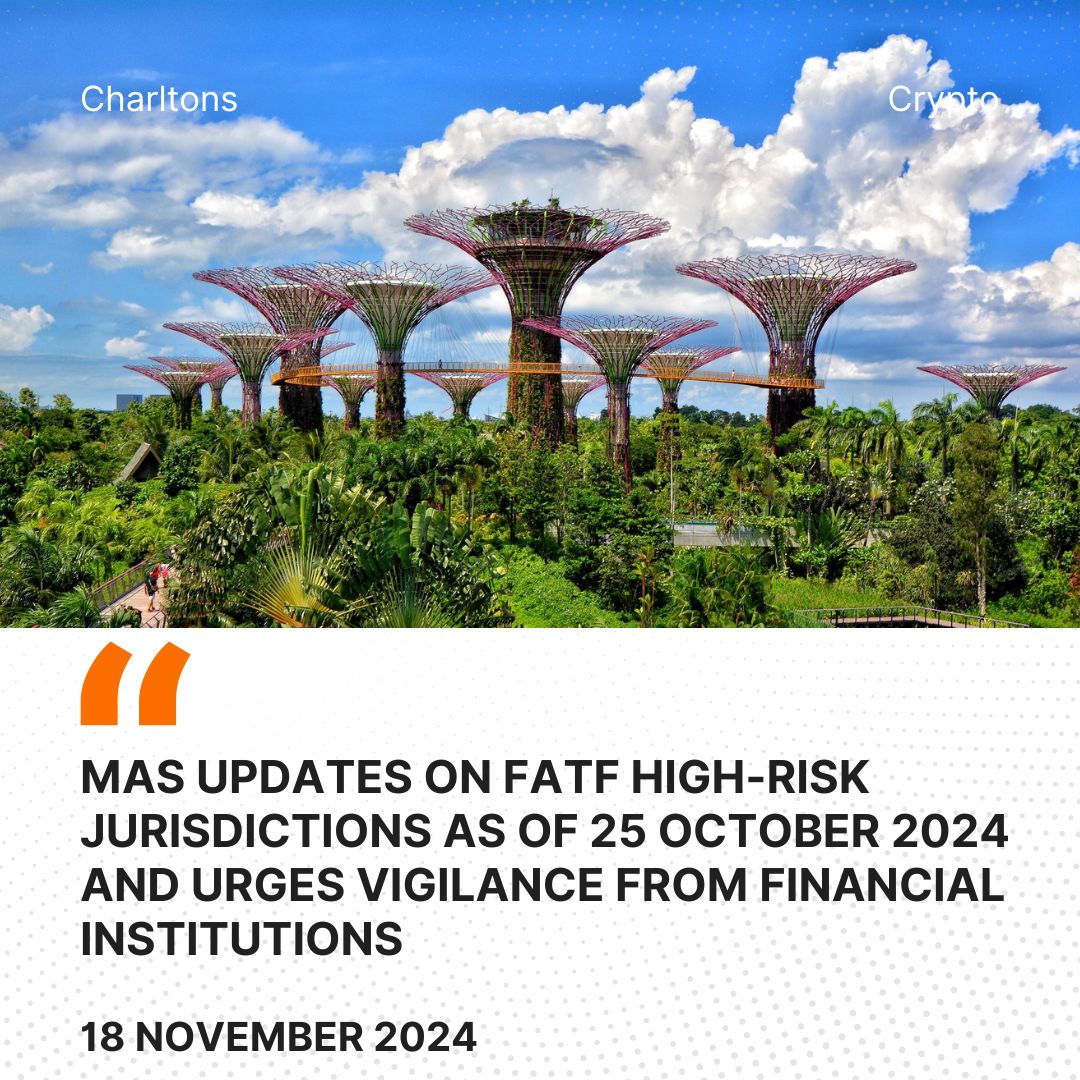
On 18 November 2024, the Monetary Authority of Singapore, updated a statement on its official website, made by the Financial Action Task Force, in its October 2024 statement, in which the FATF has called attention to the Democratic People’s Republic of Korea and Iran, which remain on its list of high-risk jurisdictions subject to enhanced countermeasures. These jurisdictions have consistently failed to address deficiencies in their anti-money laundering and combating the financing of terrorism frameworks. Myanmar also continues to be monitored closely for its deficiencies, although it has not yet been subjected to the full range of countermeasures applied to the other high-risk jurisdictions.
The Democratic People’s Republic of Korea has been flagged for its continued non-compliance with international standards to combat money laundering, terrorist financing, and proliferation financing. The Financial Action Task Force expressed concern over the Democratic People’s Republic of Korea’s growing connectivity to the international financial system, which has heightened the risks associated with the proliferation of weapons of mass destruction and their financing. Financial institutions in Singapore are expected to remain highly vigilant when engaging with entities associated with the Democratic People’s Republic of Korea, including companies, financial institutions, and individuals acting on their behalf, whether directly or indirectly. Enhanced due diligence measures are required, and compliance with the Financial Services and Markets (Sanctions and Freezing of Assets of Persons – Democratic People’s Republic of Korea) Regulation 2023 is mandatory. This includes implementing targeted sanctions in accordance with United Nations Security Council resolutions to mitigate risks effectively.
Iran continues to pose significant risks due to its failure to complete critical actions outlined in its plan, which expired in 2018. The Financial Action Task Force noted Iran’s ongoing failure to ratify the Palermo and Terrorist Financing Conventions in alignment with international standards. As a result, countermeasures were fully reinstated in February 2020, and all jurisdictions have been urged to apply these measures. Financial institutions in Singapore are advised to consider Iran a high-risk jurisdiction, applying enhanced due diligence measures to transactions and relationships involving Iranian entities. Institutions are also required to comply with the Financial Services and Markets (Sanctions and Freezing of Assets of Persons – Iran) Regulations 2023. The Financial Action Task Force highlighted the severe terrorism financing risks posed by Iran, which threaten the stability and integrity of the international financial system.
Myanmar, while not subject to the same countermeasures as the Democratic People’s Republic of Korea and Iran, remains on the Financial Action Task Force’s list of jurisdictions under increased monitoring. The country has made some progress on its action plan, which expired in September 2021, but its overall advancements have been slow. Financial institutions in Singapore are required to exercise heightened vigilance when engaging with transactions and customers associated with Myanmar. Enhanced due diligence measures will be applied to detect and mitigate risks, particularly in high-risk customer relationships and transactions. Institutions must also ensure that legitimate financial flows, such as those supporting humanitarian efforts, non-profit organisation activities, and remittances, are not disrupted during the application of these measures. The Financial Action Task Force clarified that while Myanmar remains a concern, it has not yet recommended broader countermeasures beyond these enhanced measures.
The Financial Action Task Force’s October statement shows the importance of maintaining robust risk mitigation strategies for financial institutions and non-financial institutions operating under anti-money laundering and combating the financing of terrorism regulations. The guidance calls for a strong risk-based approach to address the vulnerabilities posed by high-risk jurisdictions, ensuring compliance with Singapore’s regulatory requirements, including sanctions and asset-freezing measures.
(Source: https://www.mas.gov.sg/publications/fatf-statement/2024/october-2024-fatf-statement, https://www.fatf-gafi.org/en/publications/High-risk-and-other-monitored-jurisdictions/Call-for-action-october-2024.html)





